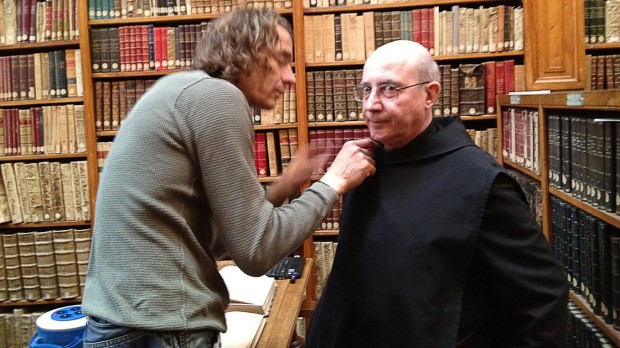
Yesterday morning we brought you six Sundance 2013 shorts already available to stream and today it’s time to take a preview at the feature length line-up with over a dozen trailers for films set to debut in Park City soon. We’ve got a batch of documentaries, including one that looks at Google’s mission to to digitize the world, another that dissects the Beltway sniper attacks in Washington D.C., one that may surprise, simply featuring children auditioning for a film, and many more. There’s also a look at the next drama from Matthew Porterfield, the director who gave us Putty Hill, as well as an intriguing 3D film that captures airplane black box transcripts word for word. Check everything out below, including official images and synopsis from the official Sundance site.
Google and the World Brain (Ben Lewis)
The goal of accumulating all human knowledge in one repository has been a dream since ancient times. Only recently, however, has that dream become a reality. Quietly and behind closed doors, Google has been executing a project to scan and digitize every printed word on the planet. Working with the world’s most prestigious libraries, the webmasters are reinventing the limits of copyright in the name of free access to anyone, anywhere. What can possibly be wrong with this picture?
As Google and the World Brain reveals, a whole lot. Some argue that Google’s actions represent aggressive theft on an enormous scale, others see them as an attempt to monopolize our shared cultural heritage, and still others view the project as an attempt to flatten our minds by consolidating complex ideas into searchable “extra-long tweets.” At first slowly, and then with intensifying conviction, a diverse coalition mobilizes to stop the fulfillment of this ambitious dream. Incisive and riveting as it uncovers a high-stakes multinational heist, Ben Lewis’s film voices an important alternative to the technological utopianism of our time.
Charlie Victor Romeo (Robert Berger and Karlyn Michelson)
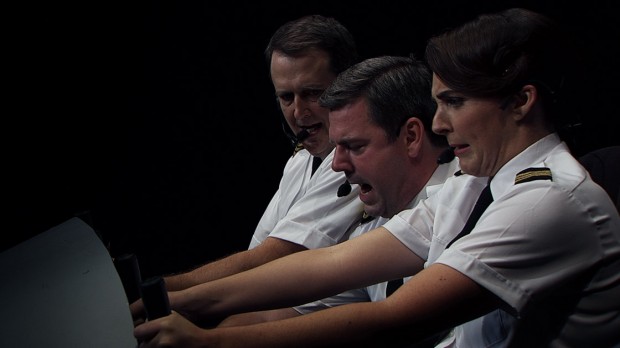
When you board an airplane, who are those people in uniform to whom you entrust your life? What do they really do when things go horribly wrong? Derived entirely from the “black box” transcripts of six major airline emergencies, Charlie Victor Romeo puts the audience inside the tension-filled cockpits of actual flights in distress, offering a fascinating portrait of the psychology of crisis and a person’s will to live to the last second.
Codirectors Robert Berger and Karlyn Michelson’s chilling and groundbreaking production stretches the boundaries of film, theatre, and the traditional documentary with this stereoscopic 3-D film of a stage play that recreates transcripts word for word. Charlie Victor Romeo transports film audiences into the best seats of the theatre and delivers the intensity and gut-wrenching emotion of these emergencies via the unique approach of live performance. Berger and Michelson not only serve up raw cinematic tension but also set the stage for future collaborations with theatrical productions.
I Used To Be Darker (Matthew Porterfield)

When Taryn, a Northern Irish runaway, finds herself in trouble in Ocean City, Maryland, she seeks refuge with her aunt and uncle in Baltimore. But Kim and Bill have problems of their own: they are trying to handle the end of their marriage gracefully for the sake of their daughter, Abby, just home from her first year of college. I Used to Be Darker is a story of people finding each other and letting each other go; of looking for love where they have found it before; and, when that does not work, figuring out where they might find it next.
With his third feature, writer/director Matthew Porterfield focuses his delicate eye on this rip in a family’s fabric and the emotional fallout it causes. Cinematographer Jeremy Saulnier beautifully tracks the bubbling revelations and suburban Baltimore landscape in this quiet story that is enlivened by live performance.
Gideon’s Army (Dawn Porter)
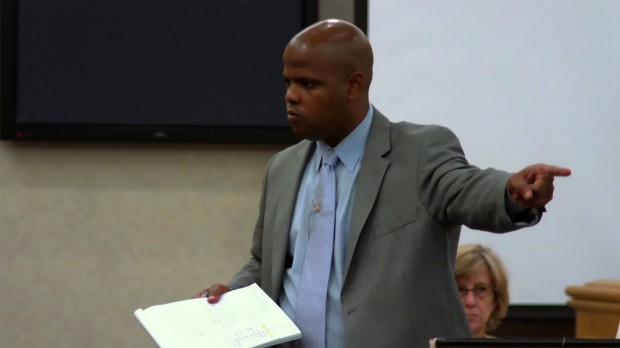
In 1963, the landmark Supreme Court decision Gideon v. Wainwright guaranteed all defendants facing imprisonment the right to a lawyer. Now, every year millions of Americans facing trial rely on fewer than 15,000 public defenders, and the country’s justice system hangs in the balance. Gideon’s Army confronts this crisis head-on, tracking a group of young southern public defenders hell-bent on protecting the sanctity of human liberty.
Taut, visceral filmmaking plunges us into the unbelievably demanding lives of three fledgling public defenders in Georgia and Mississippi. Not only are they juggling hundreds of cases independently, but their offices don’t have adequate resources, and their salaries barely cover personal expenses—including six-figure law-school debts.
As all three lawyers harness ingenuity, perseverance, and adrenaline to fight for their indigent clients, we wonder: How long can they keep working in a constant state of emergency? Will they find the moral support to sustain this higher calling? And if not, what happens to our democracy?
Halley (Sebastian Hofmann)
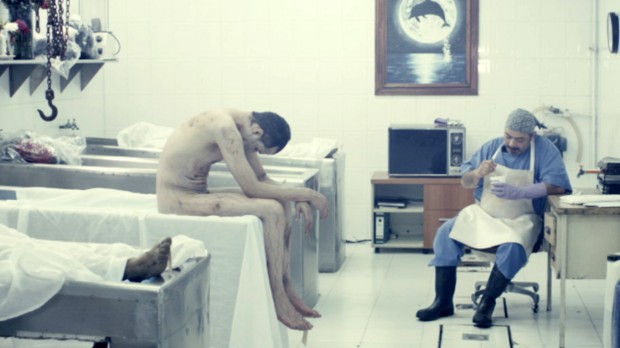
Beto, a security guard in a Mexico City gym, quietly observes the healthy bodies of the muscle-bound patrons, which contrast sharply with his own physical deterioration. Afflicted with a strange illness, the scared and ashamed Beto surrenders to his condition and holes up in his apartment, injecting himself with embalming fluid to stem his increasing decay. Beto’s melancholy grows as he realizes—in the words of an affable morgue attendant—that “the diseased become the disease.” Through the friendly advances of the gym’s female owner, Beto dances with the illusory promise of feeling alive again.
Sebastian Hofmann’s increasingly surrealistic feature debut subverts genre conventions and audience expectations, treating its living-dead protagonist with sensitivity and compassion. Hofmann’s camera boldly exposes the grotesque details of Beto’s physical condition while artfully depicting his isolated existence. Captivating lead actor Alberto Trujillo appears to waste away before our eyes, making his fumbling attempts to cling to life all the more haunting.
What They Don’t Talk About When They Talk About Love (Mouly Surya)

At a high school for the visually impaired in Jakarta, Indonesia, the students are like any other teenagers: they attend classes, pursue artistic endeavors, and fall in love. The most privileged of the bunch, Diana, patiently awaits signs of womanhood and humors her mother’s attempts to mold her into the perfect girl. The beautiful Fitri has no shortage of male attention and enters into a passionate affair with, unbeknownst to her, a hearing-impaired punk rocker who is masquerading as a doctor. Meanwhile, Maya, blind since birth, aspires to be an actress and performer. Regardless of physical barriers, the students find ways to communicate and collaborate, enabling them to connect—with each other and to the outside world.
Writer/director Mouly Surya elegantly employs the language of cinema to evoke the sensory experience of her protagonists through deliberate silences, languid tracking shots down corridors, and highly choreographed movement. With gentle humor, playfulness, and heightened realism, What They Don’t Talk About… draws out the poetry in its characters, highlighting the magic in their lives and respecting who they are.
Inequality For Love (Jacob Kornbluth)
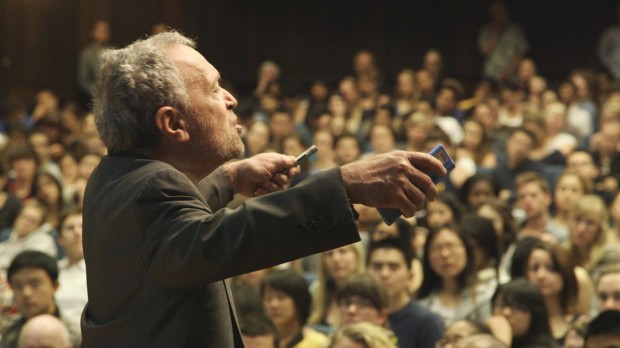
In lectures, books, and years of commentary, former labor secretary and current UC Berkeley Professor Robert Reich has argued passionately that widening income inequality poses one of the most severe threats to our economy and democracy.
Filmmaker Jacob Kornbluth, inspired by Reich’s book Aftershock, tackles this massive topic by effectively adapting Reich himself into documentary form. Asking how we got here and what happens if we don’t act, filmmaker and subject dissect countless issues—among them wage stagnation, consolidated wealth, manufacturing, financial instruments, capital markets, globalization, and election politics—with an uncanny ability to render complex principles digestible. In addition to interviews with other economists, politicians, and experts, Kornbluth documents the struggles of regular working people for whom the American dream is increasingly untenable.
In this An Inconvenient Truth for the economy, Reich presents a compelling, intellectually rigorous narrative bolstered by abundant research and graphics. In upholding rational inquiry over ideological prisms, he encourages us (as he does his students) not to share his opinion but to challenge our own assumptions.
Blue Caprice (Alexandre Moors)
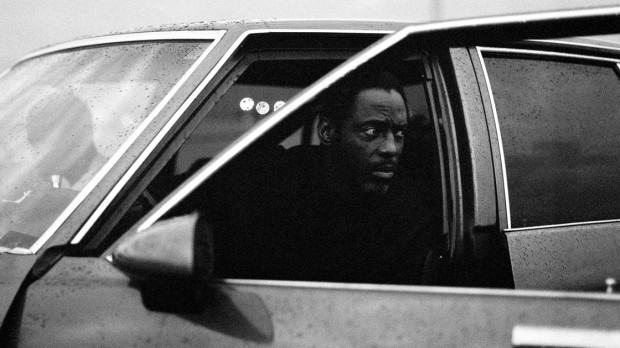
Blue Caprice is inspired by the Beltway sniper attacks during which two men, John Muhammed and Lee Malvo, conducted a siege of terror on the Washington, D.C. area. Their method: a series of random shootings in public places. Their weapon: a sniper rifle, fired from the trunk of a blue Chevrolet Caprice. The film investigates the genesis of those horrific events from the point of view of the two shooters, whose distorted father-son relationship facilitated their long and bloody journey across America.
Marked by captivating performances, lyrical camerawork, and a fractured structure, Blue Caprice documents the mechanisms that lead its subjects to embrace physical violence. Eschewing the conventional approach familiar to the genre, director Alexandre Moors utilizes a formidable cinematic lexicon to concoct a harrowing psychological exploration of the two cold-blooded killers that will make a forceful impact on audiences that remains long after the lights come up.
Blood Brother (Steve Hoover)
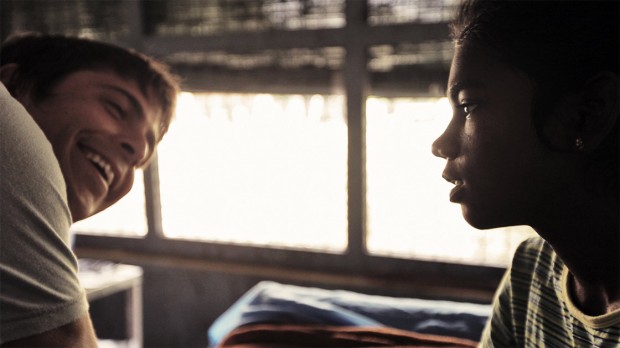
The unmistakable power of love is celebrated in this story of one man’s decision to move to India and restart his life among the dispossessed. “Rocky Anna,” as the children living at an orphanage for those infected with HIV know him, was dissatisfied with his life in America. Having grown up without a close-knit family of his own, he found his calling living and working with kids in need. Unlike others who simply passed through their lives, Rocky stayed, dedicating himself to their health and well-being. Despite formidable challenges, his playful spirit and determination in the face of despair proves to be an invaluable resource.
Director Steve Hoover—who is best friends with his subject—ventured to India to chronicle Rocky’s newfound life in this beautifully crafted and personal film. The bond Rocky forges with his friend and the deep connection he makes with the children he serves is Blood Brother’s testament to one person’s ability to create a meaningful life.
Wajma (An Afghan Love Story) (Barmak Akram)
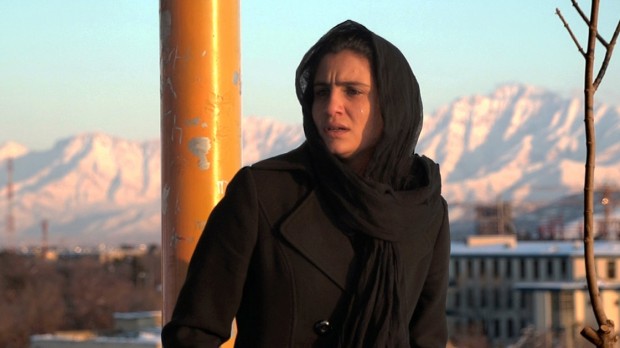
It’s snowing in Kabul, and gregarious waiter Mustafa charms a pretty student named Wajma. The pair begin a clandestine relationship—they’re playful and passionate but ever mindful of the societal rules they are breaking. After Wajma discovers she is pregnant, her certainty that Mustafa will marry her falters, and word of their dalliance gets out. Her father must decide between his culturally held right to uphold family honor and his devotion to his daughter.
Wajma (An Afghan Love Story) offers us a more complex and nuanced portrait of contemporary dating and the role of women in middle-class Afghanistan than we’ve been permitted to see before onscreen. Wajma Bahar’s dynamic intensity in the title role is matched by the powerful work of Hadji Gul as her foreboding but conflicted father. Beginning his story as an intimate romance, filmmaker Barmak Akram shifts the focus to the volatility in Wajma’s home after her secret is divulged, ultimately revealing an Afghan family just as capable of cruelty—and forgiveness—as any in the world.
American Promise (Joe Brewster and Michèle Stephenson)

In 1999, filmmakers Joe Brewster and Michèle Stephenson turned the camera on themselves and began filming their five-year-old son, Idris, and his best friend, Seun, as they started kindergarten at the prestigious Dalton School just as the private institution was committing to diversify its student body. Their cameras continued to follow both families for another 12 years as the paths of the two boys diverged—one continued private school while the other pursued a very different route through the public education system.
American Promise is an epic and groundbreaking documentary charged with the hope that every child can reach his or her full potential and contribute to a better future for our country. It calls into question commonly held assumptions about educational access and what factors really influence academic performance. Stephenson and Brewster deliver a rare, intimate, and emotional portrait of black middle-class family life, humanizing the unique journey of African-American boys as they face the real-life hurdles society poses for young men of color, inside and outside the classroom.
God Loves Uganda (Roger Ross Williams)
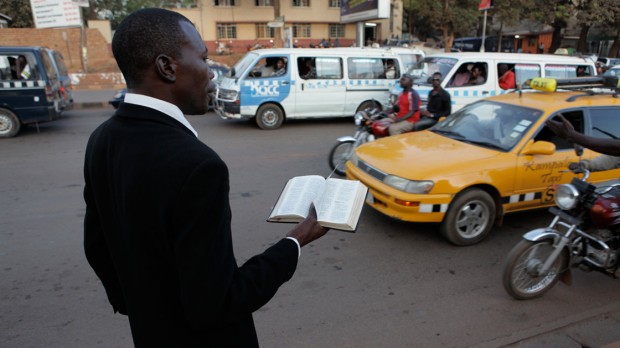
A battle rages in East Africa, where crosses replace guns and shouts of prayer roar louder than missiles. American evangelical Christians have chosen Uganda, with Africa’s youngest and most vulnerable population, as their ground zero in a battle for the soul of a continent. American missionaries and religious leaders are working with African pastors in a radical campaign to eradicate sin through the most extreme measures. The stakes are nothing less than life and death.
Filmmaker Roger Ross Williams exposes the missionary movement in Uganda as an outgrowth of Africa’s colonialist past and a twenty-first century crusade to recreate a continent of people in the image and likeness of America’s most extreme fundamentalists. Williams captures vérité footage so shocking that viewers may be squirming in their seats. Masterfully crafted and astonishingly provocative, God Loves Uganda may be the most terrifying film of the year.
The Machine Which Makes Everything Disappear (Tinatin Gurchiani)
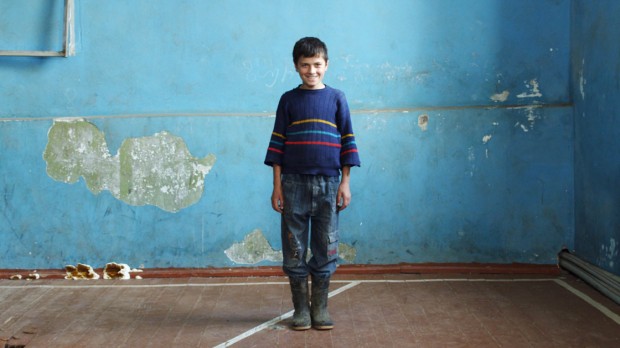
The story begins with an experiment. A filmmaker in the country of Georgia posts an ad inviting youth to audition for her film. Facing the camera, the hopefuls confess their struggles and dreams. These raw interviews unfold seamlessly into cinematic slivers of Georgian life. A teenager awaits news of his father’s surgery. A girl anticipates her wedding. The governor of a tiny village faces a monumental decision. A soldier attempts to link his imprisoned brother to the world outside, and a young woman confronts the mother who abandoned her. These threads form a fluid Altman-esque collage of characters—and a nation—teetering on the brink of change. It’s a world where tradition and modernity subtly intermingle: singing traditional ballads is as common a self-expression as listening to hip-hop or playing online poker.
Mixing metanarrative with heightened visual aesthetics, The Machine Which Makes Everything Disappear intuitively penetrates individual lives to conjure a richly layered, indelible portrait of a society, brilliantly becoming more than the sum of its parts.
Circles (Srdan Golubovic)
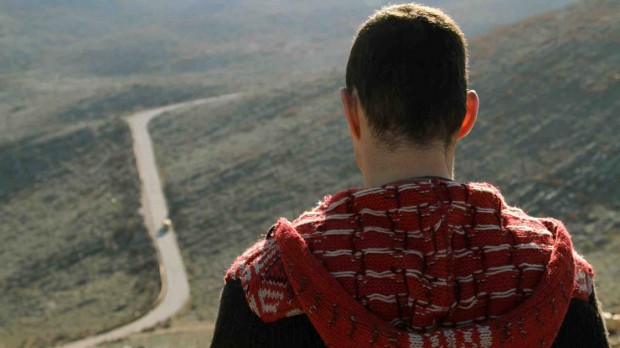
Circles unfolds as a triptych, exploring the moral convolutions and complex story strands that emerge from one fateful moment.
Marco, a Serbian soldier on leave during the war, returns to his Bosnian hometown. When three fellow soldiers accost Haris, a Muslim shopkeeper, Marco intervenes, but it costs him his life. Twelve years later the war is over, but the wounds remain open. Marco’s father is rebuilding a church when Bogdan, the son of one of Marco’s killers, appears looking for work. Meanwhile in Belgrade, Marco’s friend Nabobs, a renowned surgeon, debates whether or not to operate on another of Marco’s killers. And in Germany, Haris—now married with a family—strives to repay his debt when Marco’s widow arrives seeking refuge.
With its gorgeous cinematography and simmering tension, Srdan Golubovic’s third feature (The Trap, 2007, garnered great acclaim) employs a multifaceted, yet simple, structure that contemplates revenge, redemption, and reconciliation. Aware of how easily hatred and violence can create life-shattering ripples, Golubovic looks at the consequences of moral courage, asking whether a heroic act can generate ripples of another kind.
Which films are you most-anticipating? Which trailers impressed you most?

